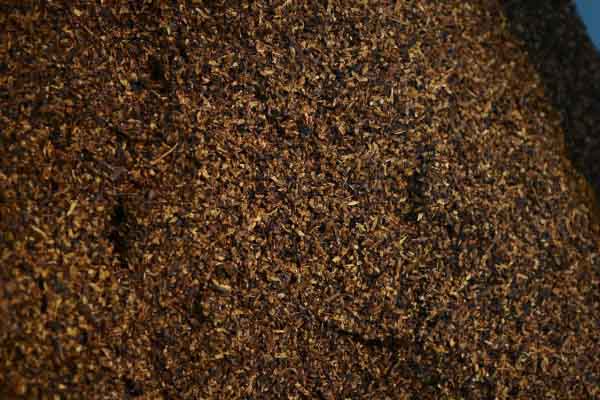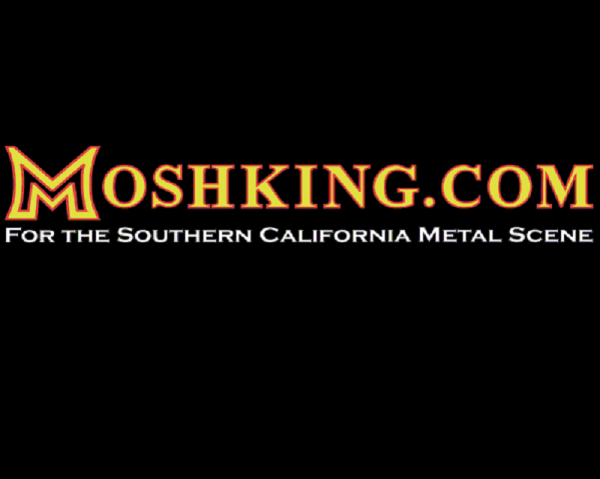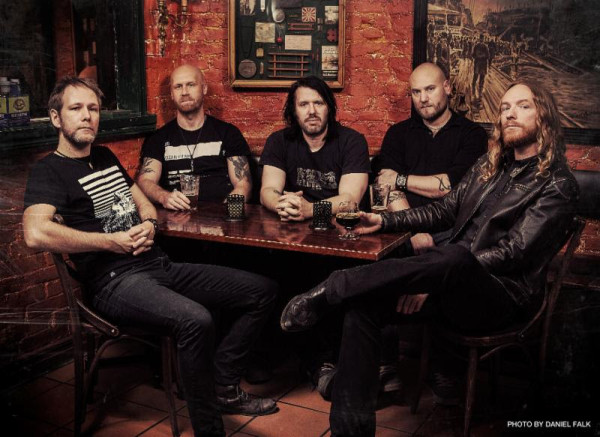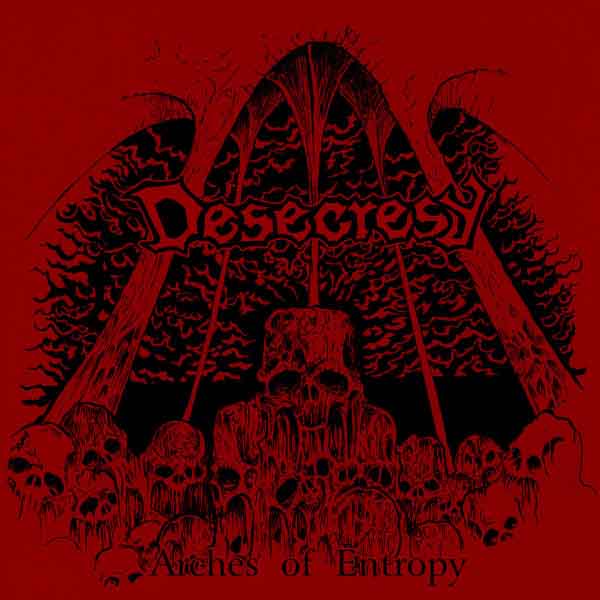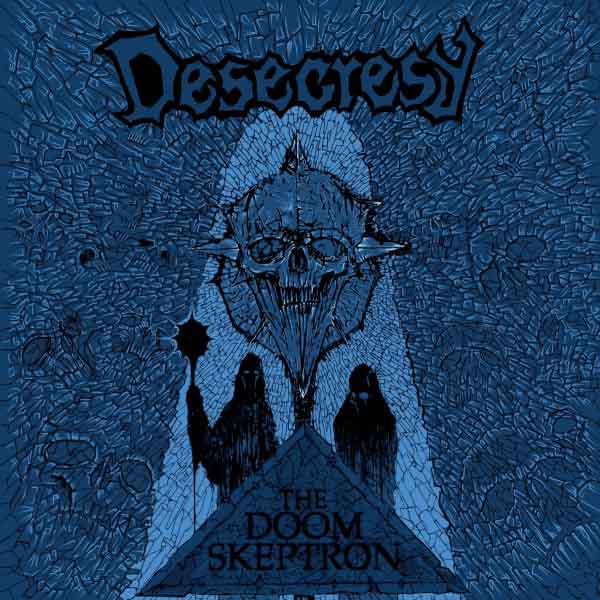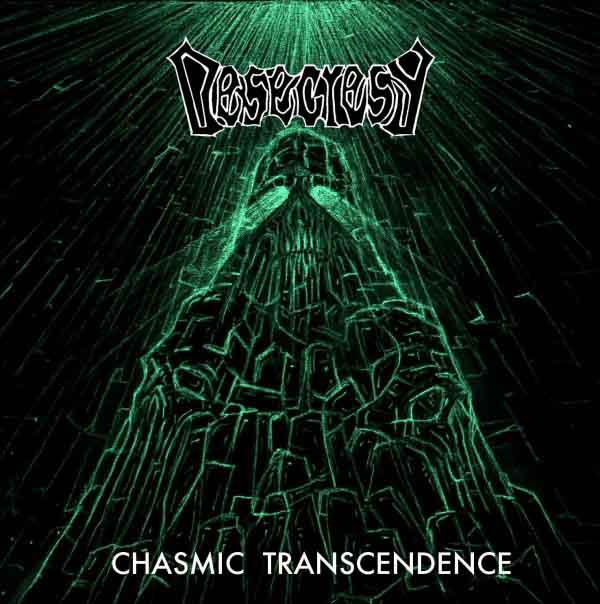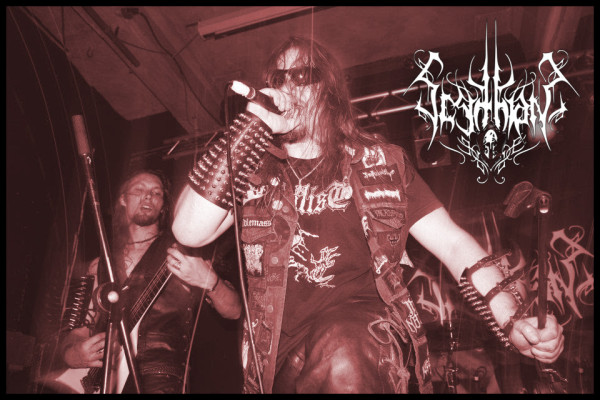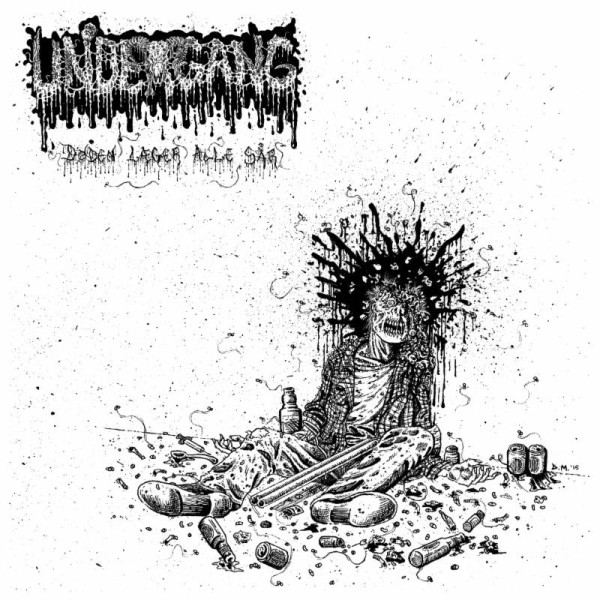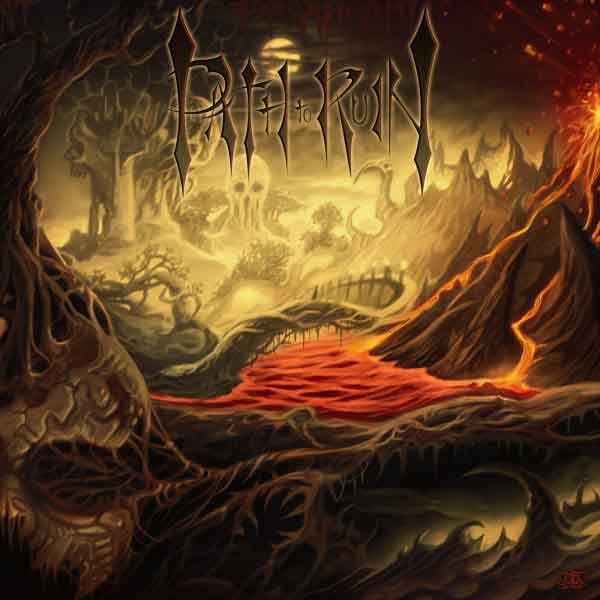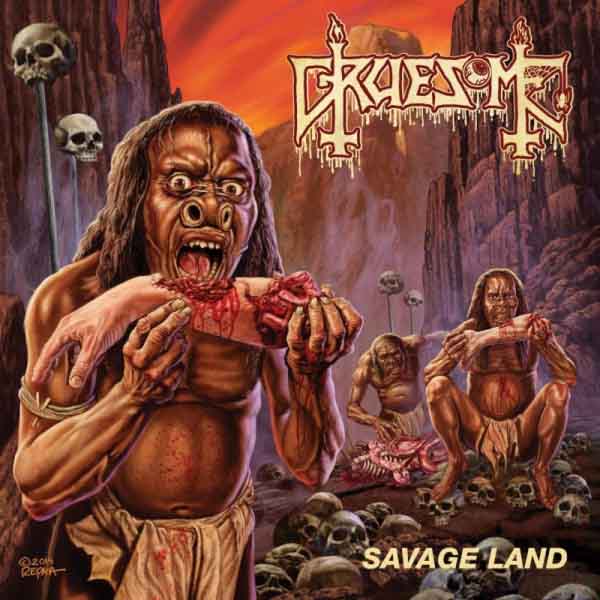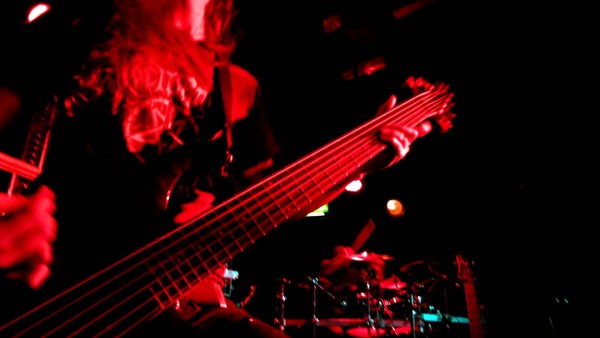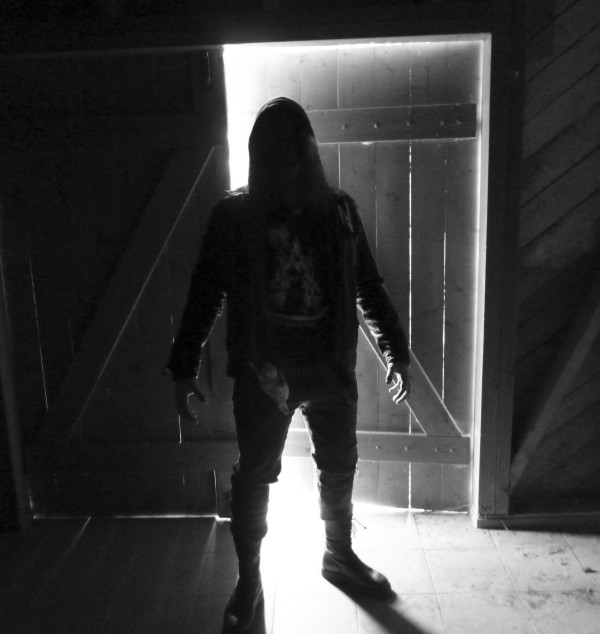
I discovered the music of Blood Urn through the recommendation of a friend. Like most of what I listen to now, it is music that upholds the spirit of older underground metal, the earliest prog rock, and early metal bands like Black Sabbath: a desire to look past the official one-dimensional categorical narrative and uncover the organic life beneath, and through that, to avoid the manipulation of the mass culture around us and discover personal truths that also correspond to tendencies in reality itself. In the style of the oldest death metal bands, Blood Urn knits together riffs into a complex narrative that continually reinvents itself, creating a roller coaster through a labyrinth effect that incorporates both the progressive and psychedelic ancestry of metal. Fortunately, I was able to have brief speaks with the founder and composer of Blood Urn…
When did Blood Urn form and who are the members? What have you released so far?
The name was given to the project in 2010, but a vague idea already existed for several years before, slowly becoming a definite force. We are not a band. I write and record all the music, a friend records the vocals and some allies contribute small parts. We have released two demos on tape: “Unchain the Abhorrent” (2011) and “…of Gory Sorcery and Death” (2014).
What inspirations and influences helped propel you into starting Blood Urn?
A deep love for darkness and metal music. My influences are mostly the music that I listen to. But of course I also cherish certain occult literature, splatter movies, mythology, paintings… What I like about making (death) metal is that one can incorporate all these influences in such a naive way; there is no need for huge systematic concepts, but a lot of space for instinct and eclectic working. It never looses it’s reckless teenage approach but also provides a sense of depth and seriousness.
A riff has to make sense in the context of a song and it has to serve the song, that is what’s most important to me.
You say: “My influences are mostly the music that I listen to. But of course I also cherish certain occult literature, splatter movies, mythology, paintings…” Can you list your musical influences, especially when you started out with Blood Urn, in addition to literature, movies, mythology and paintings? I think people are fascinated by this kind of stuff because it often reveals a lot about what you value.
Things that are a continuous influence for my work with Blood Urn (and sometimes beyond):
MUSIC
Absu (death metal era, especially the first album and earlier stuff)
Nile (especially the first album)
Cryptopsy (first two albums)
Morbid Angel (old)
Archgoat (old)
LITERATURE
Occult stuff like Peter J. Carrol, Aleister Crowley, Austin Osman Spare, but not so much recently.
Philosophy like Nietzsche, Camus, Evola, poetic works from Baudelaire, works on religion and spirituality like Mircea Eliade.
MOVIES
Stupid splatter movies, horror movies like Evil Dead, Hellraiser, experimental stuff like Begotten.
MYTHOLOGY
Only Norse and celtic mythology when it comes to Blood Urn.
PAINTINGS / ART
I don’t have vast knowledge when it comes to art, but I know what I like when I see it. Rubens’ “Medusa”, Hieronymus Bosch, old woodcuts illustrating death, plague and the devil. VERY much old anatomic illustrations, for example by Andreas Vesalius. Specific Austrian art: Viennese actionism, Hermann Nitsch,… everybody should check this out!
Why did you choose an older style, when newer styles are more likely to get you record contracts, interviews and fame?
If cared about that, I would make different music. But I don’t even think that I would be able to make other music than this kind of metal in a decent way… For example, I am into prog/folk rock and would love to play that style as well, but it just ends up horrible every time I try it.
On the other hand, I am doing an interview right now and people have been responding better to my creative output than I could have ever wished for, so. I am pleased about all the feedback the way it is. If there is something like an underground metal “scene,” then I have to compliment it for being very responsive.
What is it that appeals to you about these older styles? Do you think they are still relevant? How do we measure “relevant”?
Right now, being traditional, backward-looking and a little bit nostalgic is a strength of the black and death metal scene since it spawned a lot of interesting bands that adhere to these ideals. I think tradition will always be relevant for metal music and I am extremely enthusiastic about its complexity. But that is no excuse to replace artistic vision by mere reproduction of the characteristics of a certain style/era… that is a danger for creative potential and I am a little skeptical about the way things are. I don’t know how to measure relevance, but I sure see the danger of becoming trivial. Especially after all the buzz about old death metal vanishes again… which of the records that we bought in the last five years will stand the test of time? Blood Urn? I don’t have the highest hopes, to be honest. And I don’t really care.
A good part of the songwriting may be jamming around and stringing riffs together, but most of the time I have an abstract concept for a song structure and then try to find fitting riffs.
I could not identify a single dominant influence to Blood Urn. This makes the band stand out as different from retro/revivalist bands which seem to target a specific sound from the past. How did you find your own artistic voice in your music?
Thank you, I appreciate that observation very much! I think I like re-arranging elements from different scenes / bands / eras, sometimes by intuition and sometimes intentional. But that is not a main aspect of my songwriting. Maybe it adds a little character. For “Unchain the Abhorrent” I had a vision of a bastard descending from stuff like Archgoat and old Suffocation, I can’t really say if it worked out (there definitely is room for improvement and refinement). For “… of Gory Sorcery and Death” I went for rather pure death metal.
Are there any plans to release an album? Are there advantages to releasing demos first?
“Unchain the Abhorrent” was purely a demo. It came together spontaneously, I did not care too much for sound issues, I just wanted to get something done. But after that, I have to say that I put a lot of work into “…of Gory Sorcery and Death” and it feels like the best I can do at the moment. So maybe I should have put it out as an album; I don’t know where to draw the line to be honest.
Do you listen to any current metal acts? Can you list them, if so?
I do listen to a lot of new metal. Dead Congreagation, Karnarium, Katharsis, Deathspell Omega, Triumphant,… I don’t buy every demo ever released, but I think a lot of worthwhile stuff has been going on in the last years. I also listen to other musical genres, like 70s rock, folk, hardcore punk, grindcore, ambient, noise and so on.
How do you compose your songs? Are they riff-based, melody-based or idea-based?
I would say the emphasis is on ideas! A good part of the songwriting may be jamming around and stringing riffs together, but most of the time I have an abstract concept for a song structure and then try to find fitting riffs.
I think tradition will always be relevant for metal music and I am extremely enthusiastic about its complexity. But that is no excuse to replace artistic vision by mere reproduction of the characteristics of a certain style/era.
How do you determine what riffs, songs, parts, etc. to keep and what to reject?
I write a lot of riffs and it is hard for me to reject any of them. I know, there may be a few filler-sounding riffs on my demos, but I don’t mind that too much. It gives certain other parts a climax-like effect and I like that, because it adds structure to the songs. I know a good riff when I stumble upon it, but I sometimes have hard times with parts that don’t click the first time. I tend to keep all the material I write as placeholder for better parts, but sometimes I familiarize with it after a while. A riff has to make sense in the context of a song and it has to serve the song, that is what’s most important to me.
If people like what you have been doing, where should they go next to learn more? Any upcoming news you can share?
Blood Urn does not have a website or facebook page, but feel free to contact me at nhsh218@yahoo.de. There are plans for a re-release of “…of Gory Sorcery and Death” on Vinyl as well as a new 7″. I haven’t been working on Blood Urn for the last few months, but there will be something new this year.
“Unchain the Abhorrent” (2011)
“…of Gory Sorcery and Death” (2014)
4 CommentsTags: Austria, blood urn, death metal, interview
